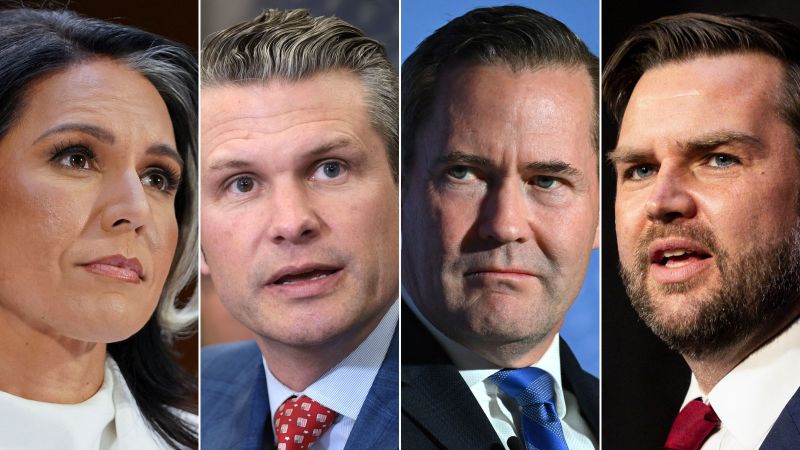The article delves into the shift in the composition of President Donald Trump’s national security team towards individuals who were foot soldiers and lower-ranking officers in the post-9/11 wars in Iraq and Afghanistan. Figures like Vice President JD Vance, Defense Secretary Pete Hegseth, national security adviser Mike Waltz, and Director of National Intelligence Tulsi Gabbard, who were once on the frontlines, now hold key positions in Trump’s administration.
These veterans bring a perspective shaped by their experiences in the global war on terror, characterized by skepticism towards traditional institutions and a preference for non-interventionist foreign policies. Despite facing criticism for their qualifications, they argue their frontline experience provides valuable insights into policy decisions’ real-world impacts.
At recent international events, Vance and Hegseth echoed Trump’s populist foreign policy, advocating for European allies to take more responsibility for their security. Meanwhile, Gabbard has been vocal about ending wasteful wars and the high human cost of conflicts. Notably, these individuals’ backgrounds stand in contrast to the traditional elite, embodying a more direct and hands-on approach to governance.
The article also highlights the diversity among GWOT veterans and the political nuances within this group. While some, like Waltz, are seen as more institutionalist, others, such as Hegseth and Gabbard, exhibit a critical stance towards the military establishment. The piece raises questions about the civilian-military gap and how public trust in veterans may be leveraged for political gain, citing instances like Hegseth’s support for pardoning convicted war criminals.
Overall, the article sheds light on the evolving dynamics within Trump’s administration, where GWOT veterans play a significant role in shaping national security policies and challenging conventional norms and institutions.

